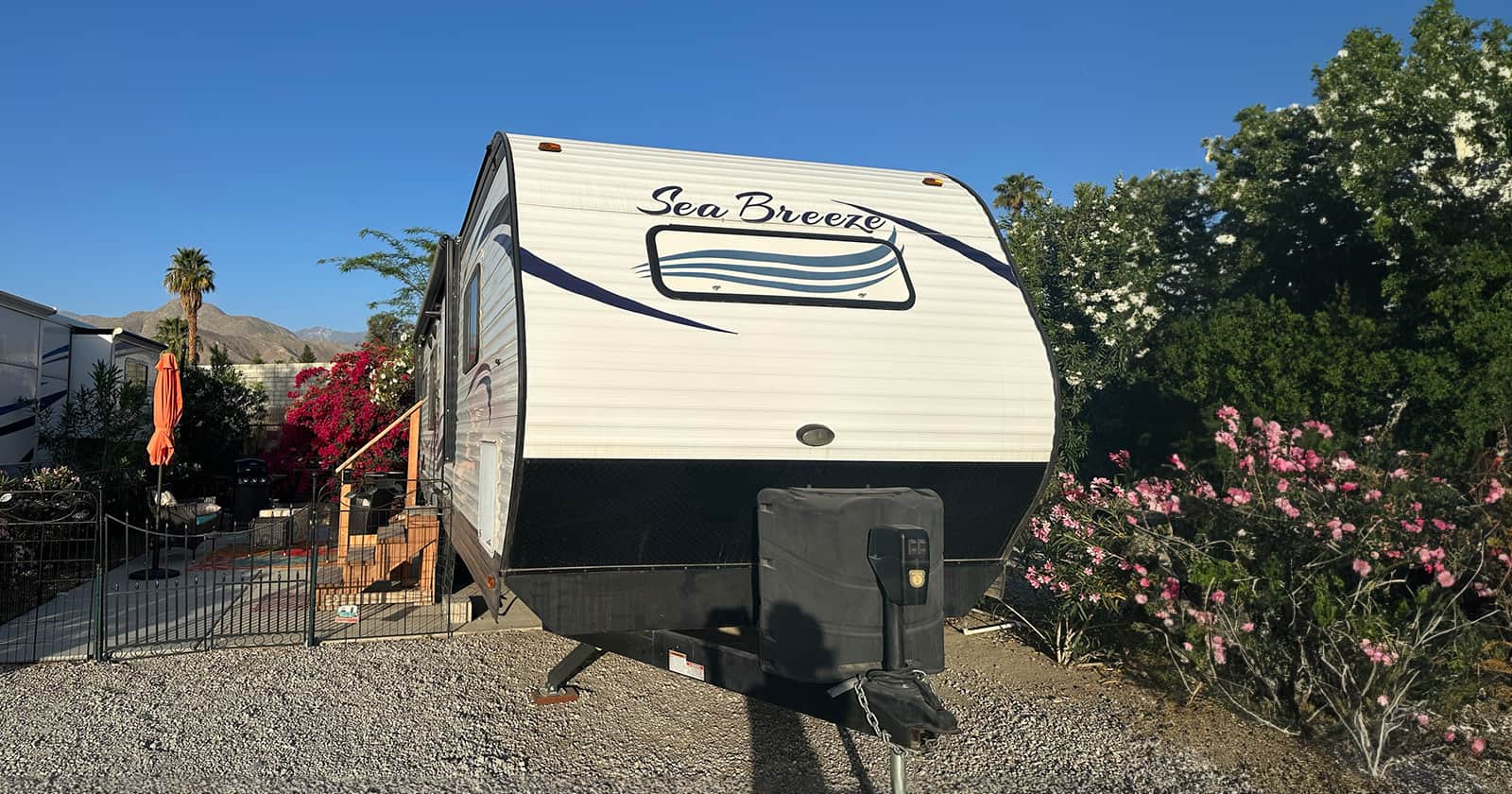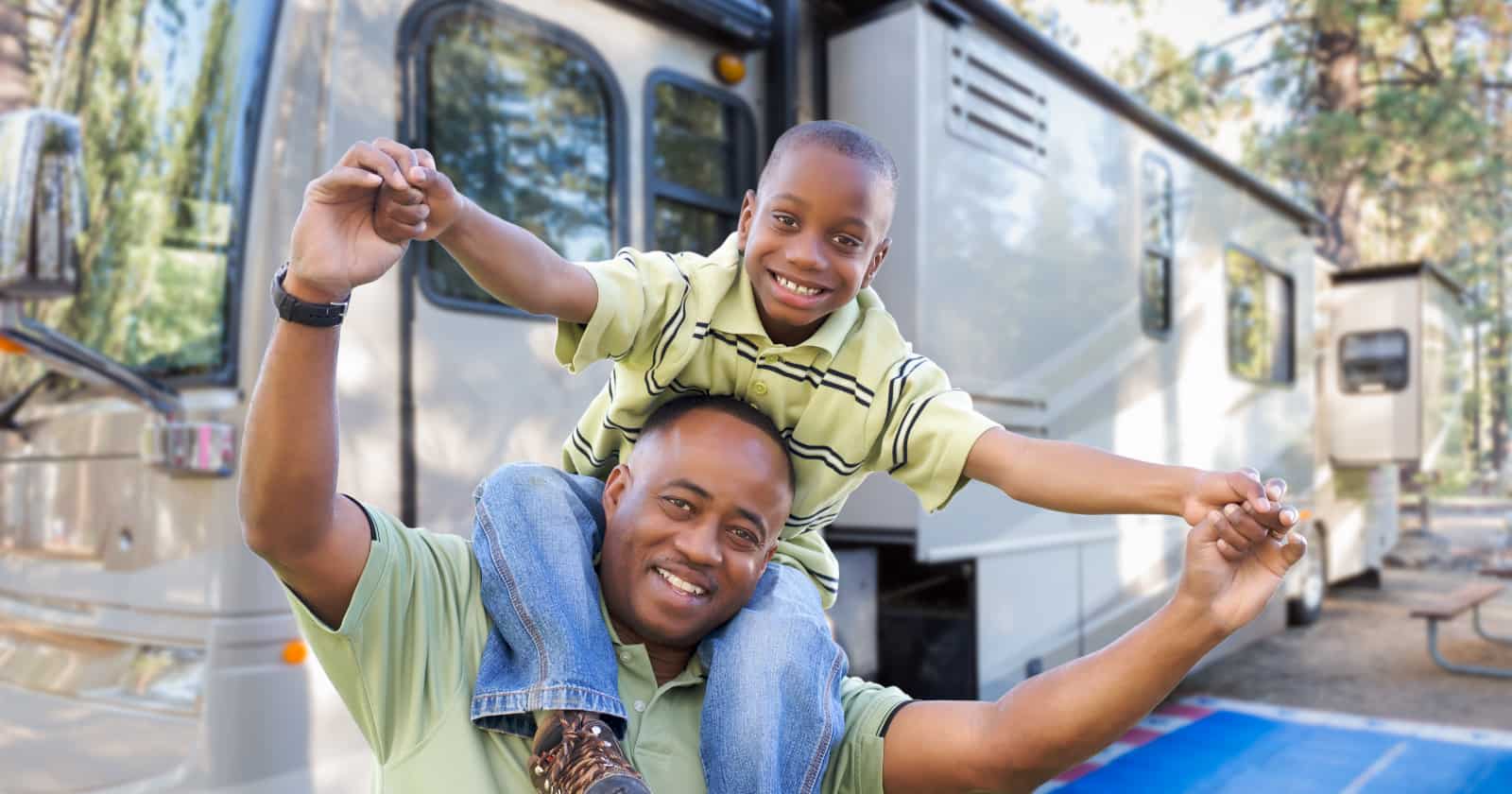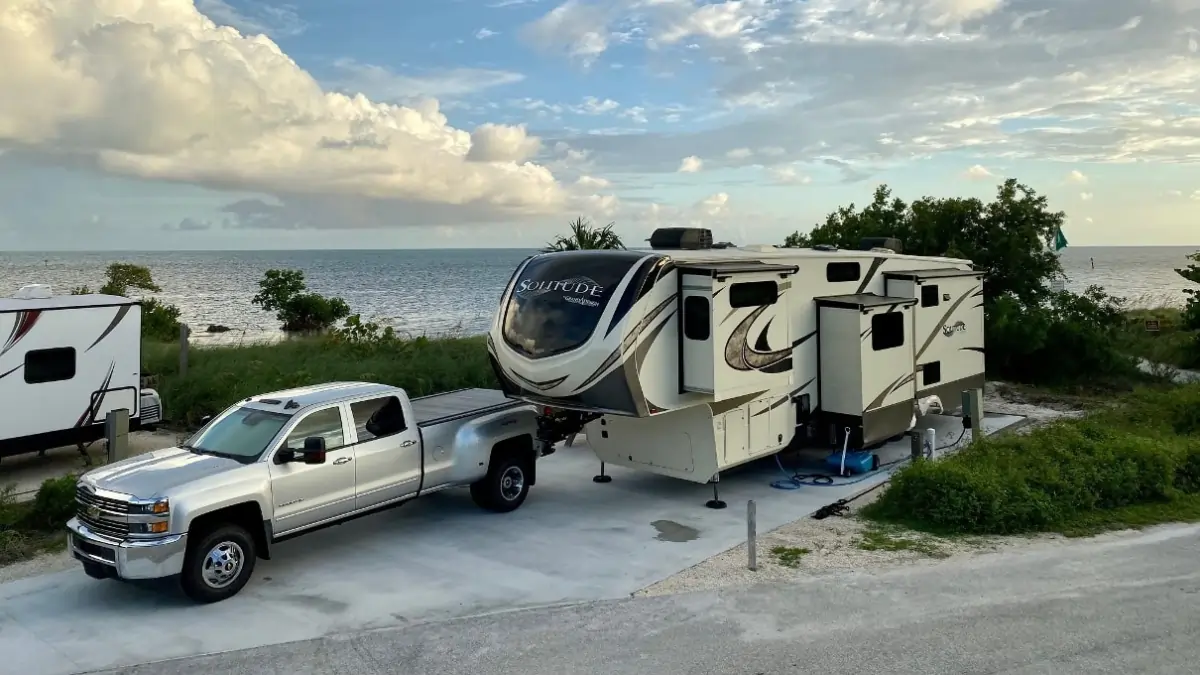Roadschooling (i.e., homeschooling while traveling full-time in an RV) has been around for a while now. That said, the roadschooling community has grown tremendously in recent years, and we’ve seen a number of different roadschooling routine options and styles emerge. This is understandable; homeschooling on the road provides kids with all kinds of amazing and unique learning opportunities, a personalized education, and a chance to grow closer as a family as you learn and travel together.
If you’re wondering if educational travel with kids might be for you, this is the place to start.
How to Get Started Roadschooling
Wondering how to get started with roadschooling and how to find a roadschooling routine? You aren’t alone. This can be an intimidating proposition, particularly if you don’t know anything about homeschooling. Luckily, many have gone before you, meaning the answers to all your questions are out there.
Here are some of our top RV schooling tips.
Roadschooling Laws
You may be wondering about the legality of roadschooling. As a mom of two kids with 8 years of experience homeschooling on the road, I assure you it is legal.
Essentially, all you need to know is that you will need to follow the homeschool laws of your domicile state. The exception to this rule is if you stay in another state for more than 30 days. In this case, the rules are a bit unclear, but many believe that after 30 days, a roadschooler will need to follow the homeschooling laws of the state they are staying in.
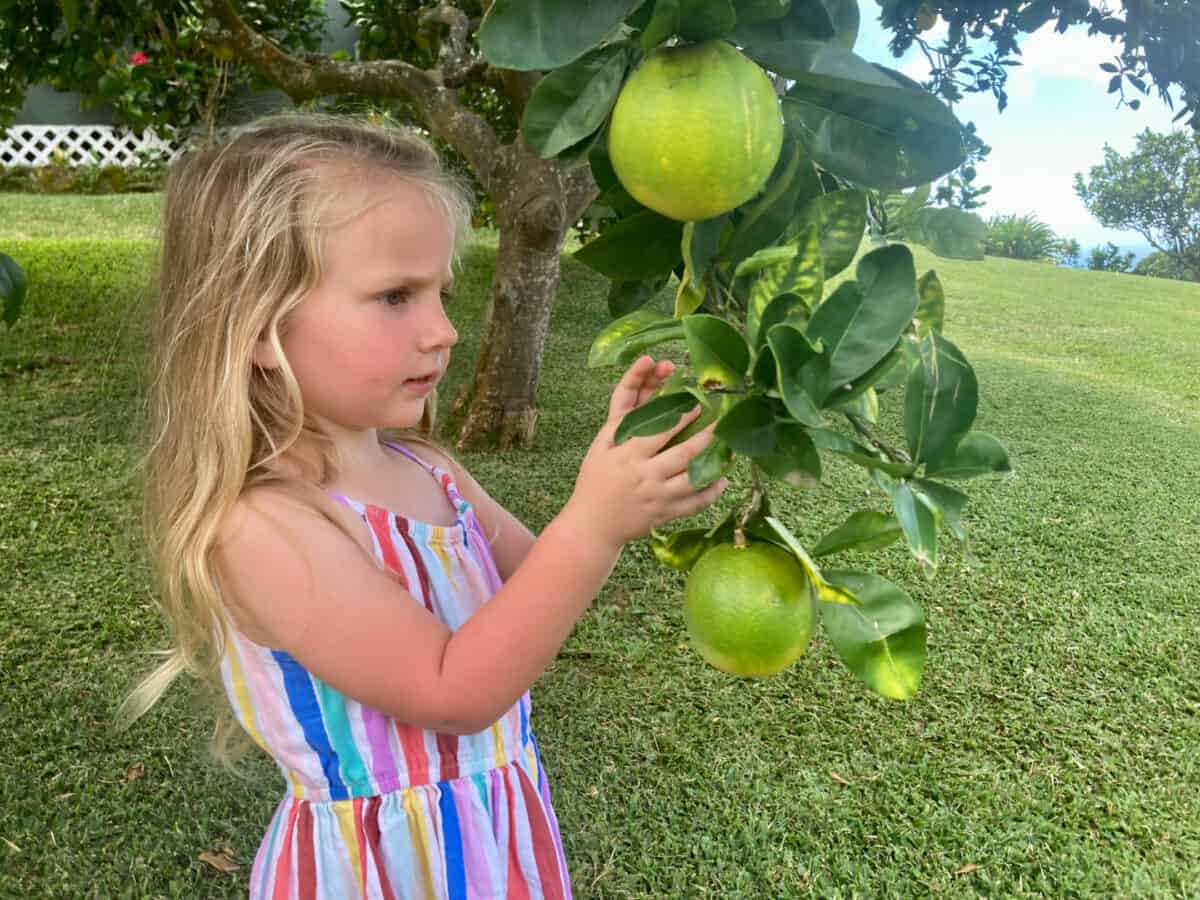
Choosing a Roadschool Curriculum
There is no one answer when it comes to choosing a roadschool curriculum. You’ll need to shop around to see what is out there and then decide what best suits your family’s needs.
Some people choose an online curriculum to save space, but that means you must always be able to connect to the internet. Other people choose all-in-one workbooks, but these can be limiting for older kids. Still, others pick traditional curricula with all of the usual textbooks.
There are also people out there who choose a more eclectic approach, picking and choosing which classes and books they use instead of buying a boxed curriculum. This is what we do for my 12-year-old, and it works well for his learning style.
Lastly, there are those who take a child-led approach. Many of these folks don’t use any traditional textbooks or workbooks at all and refer to themselves as unschoolers. This is what we currently do with my 4-year-old and what we did with my 12-year-old until very recently, and it really is amazing. That said, this method does require that you have the time and resources required to follow your child’s interests.
Some popular curriculum options include:
- Time 4 Learning
- Khan Academy
- Moby Max
- Online public school
Great resources include:
Staying Connected on the Road
The internet is an amazing tool, especially for roadschoolers. Unfortunately, staying connected to the internet everywhere you roam can be tricky. The best way to go about this is through the use of a mobile hotspot with cell service and/or Starlink satellite internet.
Related: The New Starlink for RVers Will Keep You Connected
Socializing while Roadschooling
One of the most common misconceptions about roadschoolers (and homeschoolers in general) is that they don’t socialize enough. This is not generally the case. In fact, I’d even go so far as to say that some roadschoolers have more chances to socialize with a wider variety of people than those in a traditional school. This is because people of all ages and backgrounds surround them and aren’t stuck behind a desk for 8+ hours a day.
In order to ensure your kids have friends on the road, make sure to attend rallies and other events for RVing families through organizations such as Fulltime Families and the Republic of Nomads. Join Facebook groups like Full-Time RV Living With Kids and organize get-togethers wherever you are.
It can also be helpful to spend winters in relatively warm places like Florida, southern Texas, and SoCal, where nomadic families tend to gather. The Thousand Trails parks in these places are wintertime hubs for full-time traveling families.
When you find some families you click with, make a point of traveling alongside them or meeting up in various places during your travels. It also helps to set the kids up with a Messenger Kids profile or find other ways to stay in touch with their road friends.
Maintaining Consistency
A common challenge for roadschooling families is maintaining consistency in a lifestyle that is constantly changing. Honestly, it’s important to realize that you’ll never be able to have the same kind of consistency you might have had in a sticks-and-bricks home while traveling full-time.
That said, there are some things you can do to create some roadschooling routines as you hop from one place to the next.
Stay Longer
Staying in one location for a few weeks at a time will make it a lot easier to maintain your routine. I highly recommend a slower pace of travel to anyone who plans to homeschool on the road for any length of time.
Set Aside “School Time”
For many families, having a set “school time” each day is helpful. In many cases, school time happens in the morning, and school work must be done before other things. That said, I have also met families who find evenings are better for school. Find what works for you and stick with it.
Have Non-Negotiables
In our family, there are a few chores and school-related things that are non-negotiable. Our kids know that, and though they do sometimes need reminding, they are pretty good about getting those things done without argument. I’m selective about which things are non-negotiable. Being able to focus only on getting the most important things done when life gets busy can be a lifesaver.
A Peek Into a Day of Roadschooling
One of the most beautiful things about roadschooling is that no two days look the same. Our roadschooling days morph depending upon a variety of factors, including where we are, who we are traveling with, and of course, where our kids are in their growth and development. Still, we do have some basic roadschool routines to help keep us focused.
A Recent Roadschool Day
- 8:30–9:30 AM — Wake up and reading time
- 9:30 AM — Make, eat, and clean up breakfast (kids help)
- 10:15 AM — Get dressed and ready for the day
- 10:30 AM — Math on Khan Academy with 12-year-old; number games with 4-year-old
- 11:00 AM — 4-year-old play outside with RV friends; 12-year-old work on writing script with friends
- 12:15 PM — Outschool science class for 12-year-old
- 1:15 PM — Quick lunch
- 2:00–7:00 PM — Explore EPCOT with RV friends, learning about marine life, physics, world cultures, and history
- 7:30 PM — Dinner out with RV friends
- 9:00 PM — Brush teeth, bedtime stories, and letter practice with 4-year-old
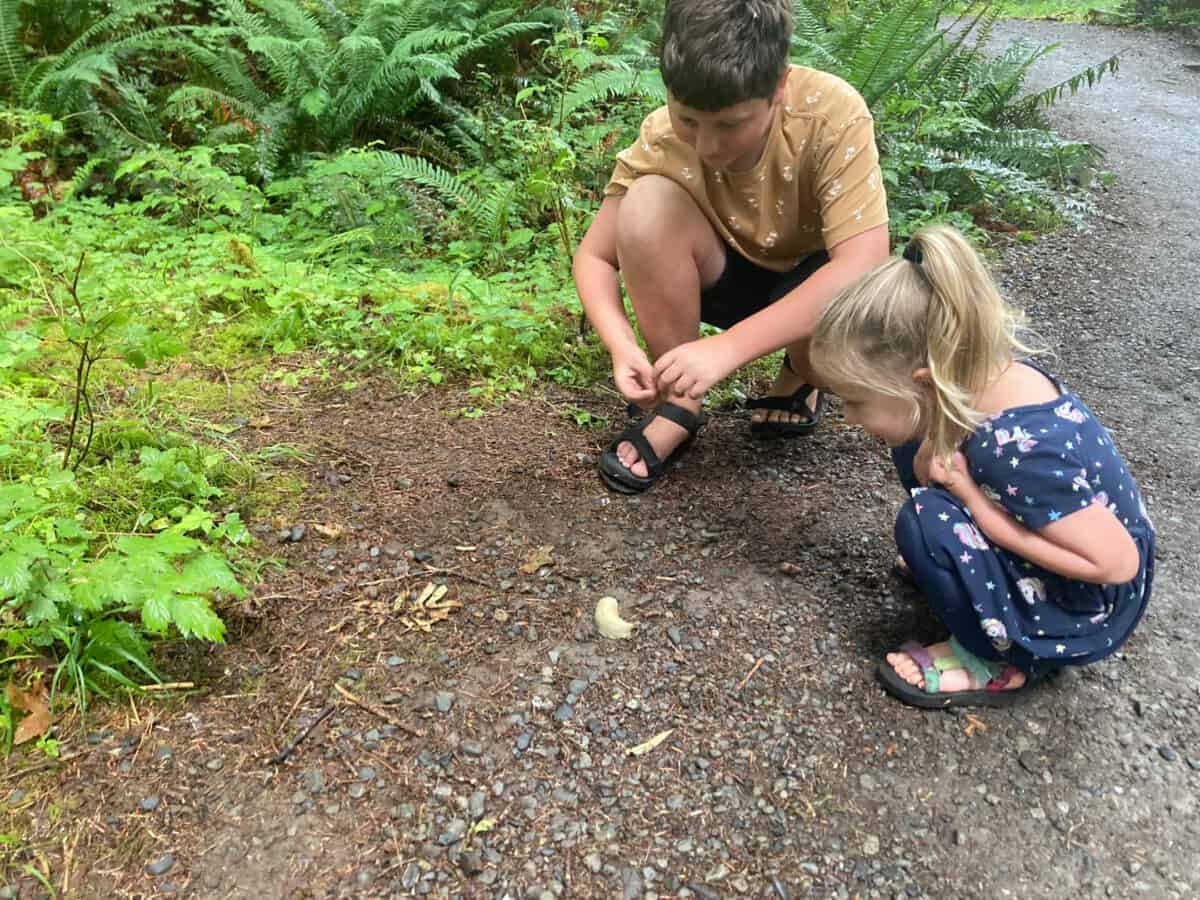
No One Way to Do It
Of course, we don’t go to EPCOT every day (though we do end up there quite often, thanks to annual passes). The day after the one above looked quite different, with more writing work for me and lots of free play involved. The one after that included a trip to a state park.
There are so many ways one of our roadschooling days can go, but we do make sure a few roadschooling routines stay consistent. We always make time for reading in the morning and at night, as well as some daily number play with the little one. For our older one, math is done on a daily basis in the mornings, bi-weekly Outschool science classes must be attended, Wednesday’s online theater class is never missed, and writing is practiced regularly (these days, it is often in the form of writing stories or plays).
It’s also important to note that the way we do educational travel with kids isn’t the only way to do it. We’ve met families who unschool with no structured curriculum whatsoever, along with families who attend public school online with a very structured roadschool routine, doing all of their school work in the mornings and saving afternoons for play.
There’s no one way to homeschool on the road, and finding your way is so, so important.

Integrating Roadschooling into Your Travels
Ready to jump into your roadschooling adventure? The tips above should be enough to get you started. Once you figure out all of the basics, have fun with it! Travel is such an amazing learning experience in and of itself, and integrating your learning into your travels makes the lessons learned while roadschooling much more meaningful.
Make a point of visiting places that offer some educational value. These can include national parks, historic sites, museums, zoos, and even some amusement parks. You can also choose destinations with a rich culture, and make cultural immersion a part of your roadschooling experience.
Find the educational aspects of any place you visit and make a point of taking advantage of them. Look for resources provided by the attractions, such as the aforementioned Junior Ranger Books at NPS sites. You might even choose to expand upon the learning that happens at a particular location by doing some reading or watching a video or documentary on the subject.
None of this has to be presented as “school.” Instead, make learning through your travels a fun family event!
Hopefully this guide has given you the tools you need to join the growing group of homeschoolers on the road, and inspired you to jump in right away. I can’t wait to run into you on your learning adventures!

